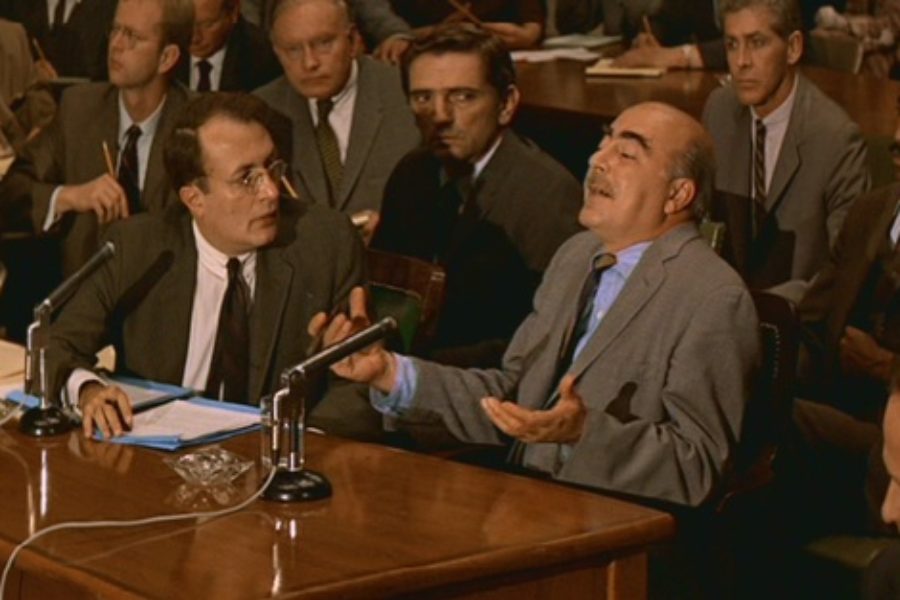Special counsel Robert Mueller has reportedly advised Donald Trump’s lawyers that the president is a “subject” but not a “target” of Mueller’s investigation. This has resulted in a great deal of triumphal celebration among the president’s supporters. After all, they reason, if Mueller hasn’t by now dredged up enough evidence to designate Trump a “target,” then the president must be in the clear.
Unfortunately, whether someone is a “target” as opposed to a “subject” of an investigation is a distinction without a difference. It’s all a matter of timing, and the “subject” of an investigation can become a “target” in the blink of a prosecutor’s eye. It happens every day.
Here are excerpts from the U.S. Attorneys’ Manual that lay out the official policy regarding the treatment of “subjects” and “targets” in grand jury investigations.
It is the policy of the Department of Justice to advise a grand jury witness of his or her rights if such witness is a ‘target’ or ‘subject’ of a grand jury investigation…
A ‘target’ is a person as to whom the prosecutor or the grand jury has substantial evidence linking him or her to the commission of a crime and who, in the judgment of the prosecutor, is a putative defendant.
A ‘subject’ of an investigation is a person whose conduct is within the scope of the grand jury’s investigation.
The manual provides that, before they testify in the grand jury, “targets” and “subjects” are to be given the exact same warnings against self-incrimination, save that a “target” should also be given “a supplemental warning that the witness’s conduct is being investigated for possible violation of federal criminal law.” These designations apply with equal force to interrogations outside the grand jury.
So, what effect do these carefully worded official policy distinctions between “targets” and “subjects” have on actual federal investigations in and out of the grand jury? Absolutely none. Here’s what really happens.
A prosecutor will always want to lure a “target” into giving a statement either to investigators or in the grand jury to pin down his version of events. This foreknowledge will help the prosecutor structure the government’s case to be presented at trial and counter any potential defense.
Moreover, if other evidence can contradict the target’s version, it can be presented at trial as a false exculpatory declaration by the defendant. This would be proof supporting the substantive crimes alleged, on the legal theory that an innocent person wouldn’t try to lie his way out of the charges and that the lies prove consciousness of guilt.
Also, depending on whether the statement was made in an interrogation or under oath before a grand jury, the “target” can be charged either with lying to investigators or with perjury or false swearing.
So, how does the prosecutor get the “target” to voluntarily submit to interrogation or testify before the grand jury? He tells defense counsel that the “target” is merely a “subject” of the investigation. Believe it or not, this frequently causes defense counsel and their clients to think they may have a chance of talking their way out of trouble.
But frequently, after the so-called “subject” has given his version of events, the prosecutor changes the witness’s designation from a mere “subject” to a “target.” This usually takes place about a nanosecond before the “target” is indicted.
Mueller’s reported designation of the president as a mere “subject” of the investigation is not only meaningless, it is a reprise of one of the oldest prosecutorial tricks in the book. He is setting a trap in the hope that the president and his legal team will think he is almost in the clear and, accordingly, should voluntarily submit to interrogation in order to clear up any misconceptions
This move is all the more alarming given that it appears to have been prompted by reports that the president’s lawyers are actually considering whether their client should voluntarily submit to an interrogation by Team Mueller.
So, based on my 20 years of conducting federal and state grand jury and street-level investigations and another 25 representing “subjects” and “targets,” permit me to offer this advice to the president’s legal team. Don’t be encouraged or misled by Mueller’s designation of your client as a mere “subject.” He’s simply baiting the trap and crossing his fingers that you and your client will be dumb enough to grab for the cheese.
Also, be aware that you are not involved in some kind of gentlemanly legal contest with reasonable, high-minded adversaries. These people are thugs with law degrees. If they can get a crack at your client in an interrogation, it won’t end well for him.
In the immortal words of “The Godfather’s” “Frankie Five Angels” Pentangelli, “This is a street thing.” You’re in a brawl against experienced prosecutors who will use any artifice they can to take down your client by any means necessary. Team Mueller is out for blood, and they’re not about to let the truth get in the way of destroying your client.
So wake up and quit playing footsie with Mueller and his feral band of Hillary Clinton sycophants. While you’re at it, you may also want to buy some brass knuckles.




4 Comments
Leave your reply.